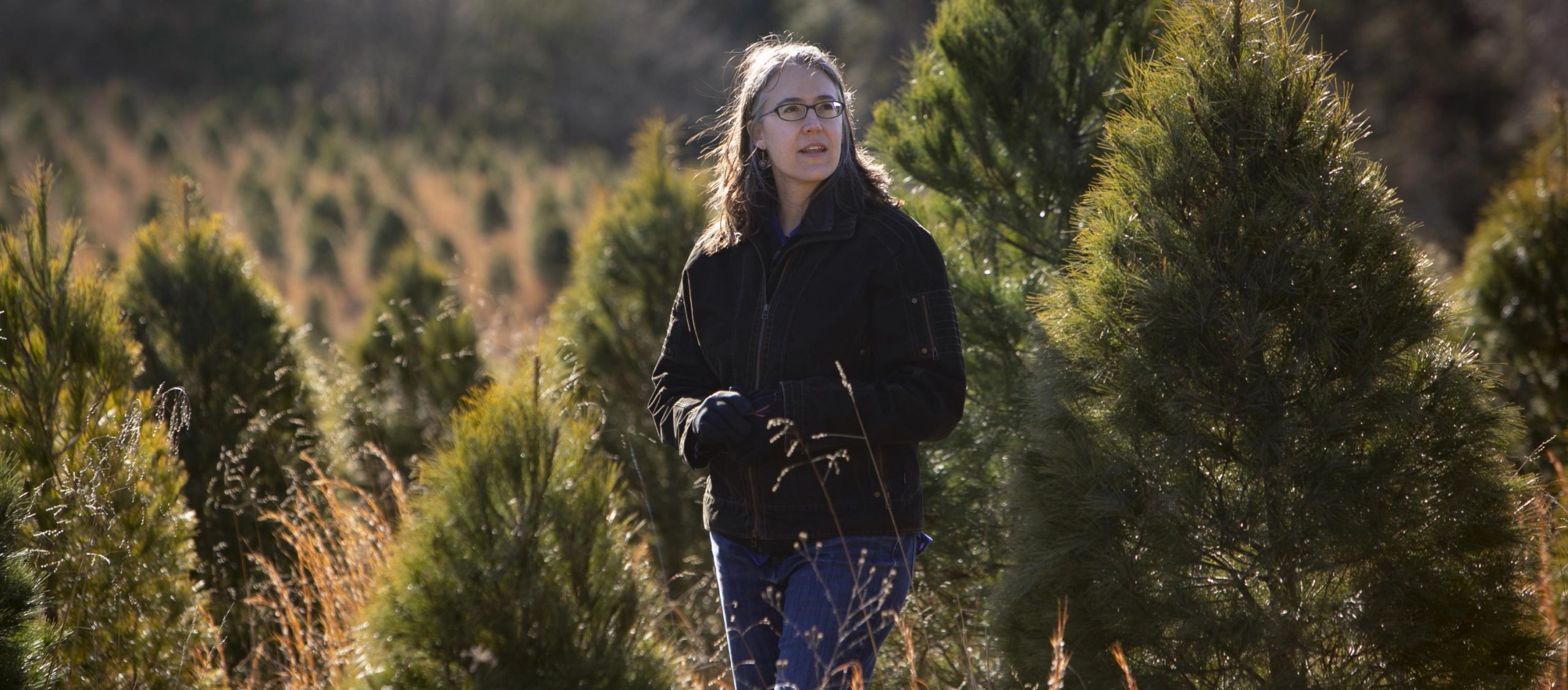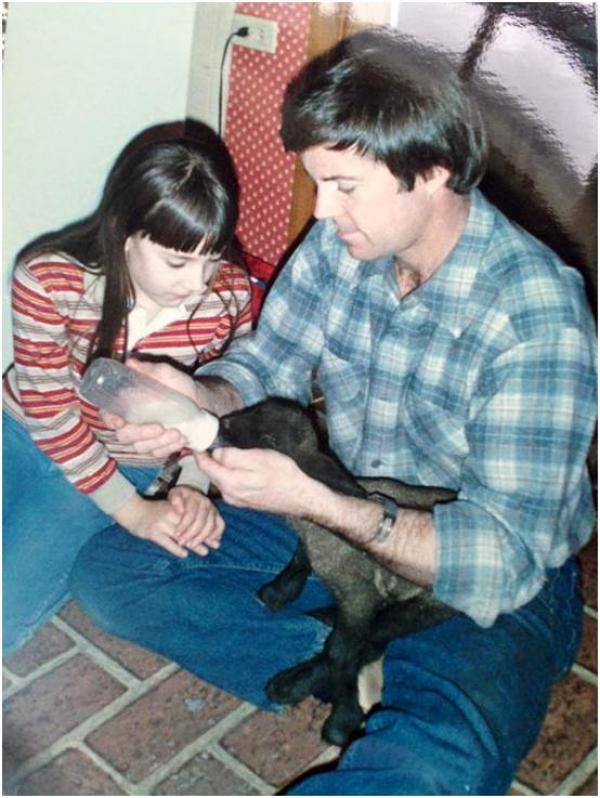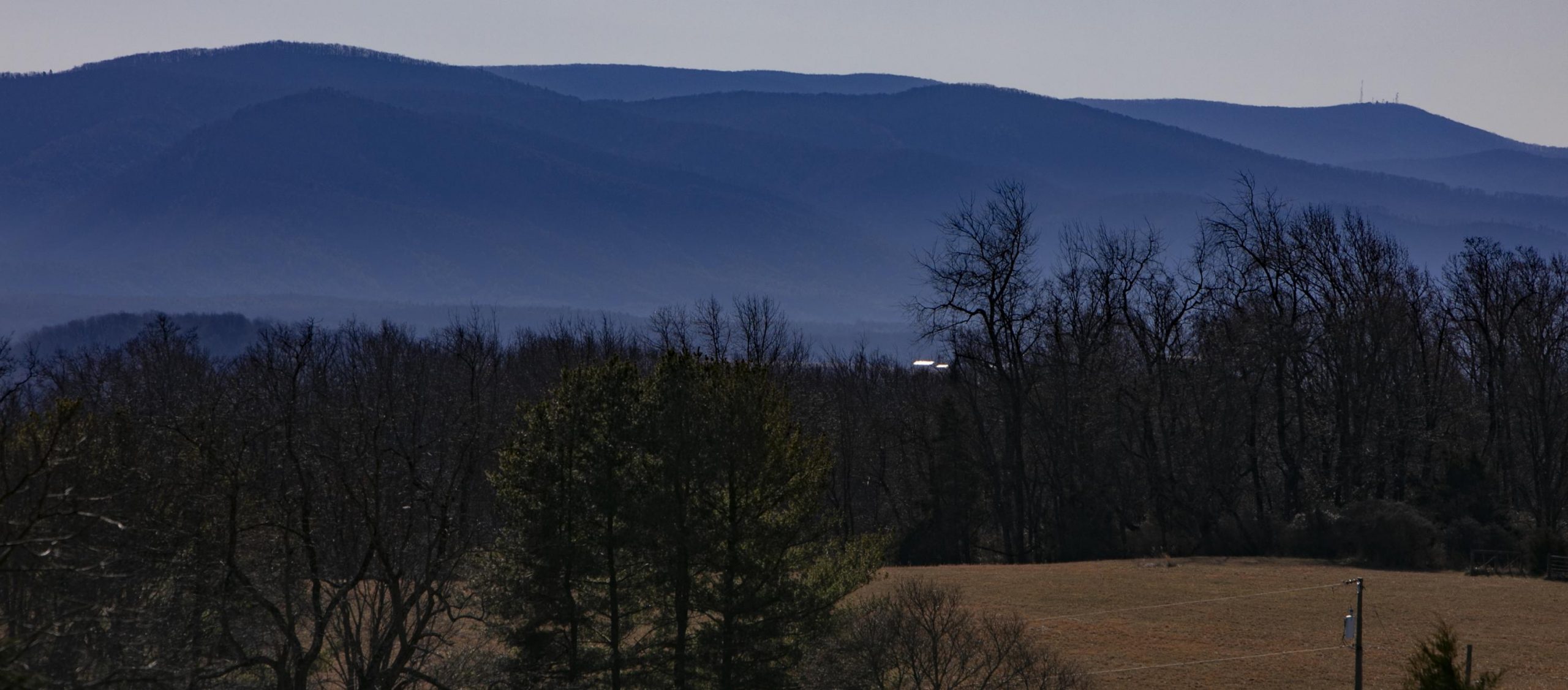Going Above & Beyond to build a better future for the South
The next major endeavor for the director of SELC’s Virginia office hits close to home.
“As lawyers at SELC, we’re always rigorously objective, but at the same time, we live in the places that we work to protect, and I think that gives all of us a little extra fire and a little extra drive to do the work that we do,” says SELC Virginia Office Director Sarah Francisco. “So for me, the impacts of the Atlantic Coast Pipeline on the Shenandoah Valley and on the George Washington National Forest are much more than just a case we’re pursuing.”
Francisco grew up on a family farm in Virginia’s rural, historic Shenandoah Valley, nestled between the Blue Ridge and Allegheny mountains. Christmas trees are the family business, and Francisco would look out across rows of Christmas trees, pasture fields, and forests to the expanse of the Blue Ridge mountains. This month, she’ll be joining her fellow SELC attorneys headed to the Supreme Court of the United States to defend their victory in a court of appeals decision that helps keep an unnecessary, costly natural gas pipeline from carving through national forest and national park lands and one of the most protected landscapes in that mountain range.

The Appalachian Trail is a 2,000-mile walking path from Georgia to Maine, drawing serious hikers from across the country—and even the world—who strive to hike its entire length and serving as a beloved destination for local hikers as well. The trail is a unit of the National Park System and, in Virginia, runs through the rugged lands of the George Washington National Forest.
The question at hand is: Does the U.S. Forest Service have the legal authority to allow the Atlantic Coast Pipeline—proposed to run from West Virginia, through Virginia and the Appalachian Trail, and into North Carolina—to cross the trail on national forest lands?
SELC attorneys, representing five local conservation organizations, successfully argued that the Forest Service lacks such authority in a case decided by the Fourth Circuit Court of Appeals. Now that the case, U.S. Forest Service v. Cowpasture River Preservation Association, is being appealed to the highest court in the nation, they’re prepared to make their argument again.
U.S. Supreme Court agrees to hear case on unnecessary and destructive Atlantic Coast Pipeline
While this case is the most significant in Francisco’s tenure as director of SELC’s Virginia Office, Francisco has already notched critical victories for SELC, the environment, and the people who cherish and depend on it.
“One that is really exciting and means a lot to me is our success in convincing the U.S. Forest Service to protect the George Washington National Forest from gas drilling and fracking,” says the attorney. “It’s such a special forest, with beloved recreation areas and important drinking water supplies for local communities. It meant a lot to me to be able to work with our great local partners to help the Forest Service make the right decision to keep this beautiful forest safe from those threats.”
The five-year campaign that ended successfully in 2015 included working closely with partners, particularly the Alliance for the Shenandoah Valley, to bring information on the dangers of gas drilling and fracking to the local community and to make sure local citizens and local officials understood the process for making their views known and telling the Forest Service this national forest was no place for fracking rigs.
Reflecting on the day the Forest Service released its management plan that made the George Washington National Forest off-limits to being leased out gas drilling and fracking, Francisco doesn’t mince words: “It was a great day for us.”
She also remembers another great day on the job – her first big win – in 2005, when she and SELC senior attorney Deborah Murray won a case, on behalf of the James River Association, challenging weak Virginia state rules for barging trash on the James River.
Francisco’s time at SELC started in summer 2001 when Francisco, then in law school, joined the team as an intern. It was the summer after her second year at the University of Richmond School of Law, and the summer she’d fall in love with the organization where she’d eventually turn her internship into a career.
“When I got to law school, I had the opportunity to dig into environmental law and really understand the power of these legal tools to protect the places that we care about,” she says.
Then, when a professor prompted the class to research the Southern Environmental Law Center, the wheels started turning.
I knew I was interested in environmental law, but I didn’t know that there was an organization right here in Virginia doing this kind of work in the South at such a high level. At that moment, I said, ‘This is exactly what I want to do.’
Sarah Francisco, Virginia Office Director
“I might be the only student in my class who actually followed instructions and went home and looked up the SELC website,” she says. “I knew I was interested in environmental law, but I didn’t know that there was an organization right here in Virginia doing this kind of work in the South at such a high level. At that moment, I said, ‘This is exactly what I want to do.’”
With a farmer for a dad and a theater professor for a mom, Francisco says, “in some ways, becoming an environmental lawyer might seem like an unusual combination, but it’s actually more natural than you’d think.”

From her father, she gained a deep respect for and connection to the land—and a good day still consists of taking a walk with him and their dogs through the woods on their farm, as it has her entire life, she says. And from her mom – a brilliant, dynamic leader – she picked up an appreciation for the academic side of things.
“I’m really grateful to both of my parents for giving me this sense of being rooted and connected to place, but also a sense that I can stand on my own two feet and go out and do almost anything,” adds Francisco.
Growing up on her family’s property, she spent most of her time outside, “really caring about the land, and the future, and wanting to make sure that our farm, our state, and our region are as special and beautiful as they are now for a long time into the future.”
In 2014, when the Atlantic Coast Pipeline was proposed, it hit close to home for SELC and for Francisco. The pipeline was proposed on top of the George Washington National Forest, which Francisco, other SELC attorneys, and local partners have been working for years to conserve. At the time, Francisco was heading up SELC’s regional work to protect national forests and parks. And the initial proposed route of the Atlantic Coast Pipeline narrowly missed her family’s farm in Augusta County. Francisco thinks the pipeline’s impact on so many landowners, rural communities, and natural areas all along its 600-mile length is a big part of what has inspired the broad stalwart opposition to this project, with people from all backgrounds and all walks of life coming together to stand up.
“Beyond the serious on-the-ground impacts, this is a pipeline that is entirely unnecessary,” says Francisco. “We do not need this pipeline to meet our realistic needs for natural gas. Instead, it has the potential to essentially lock our region into natural gas and fossil fuels at a time when we need to be moving toward clean renewable energy.”
The case SELC’s team built against the Atlantic Coast Pipeline has had ripple effects as other communities look to successfully challenge fossil fuel infrastructure across the region.
“Our Atlantic Coast Pipeline team is just amazing,” says the director of the Virginia office, who uses the words “smart,” “talented,” “creative,” “dedicated,” and “persistent,” all in one breath to describe them.
And the same words could be used to portray Francisco, who’s quick to say that she loves being a lawyer, and that she couldn’t have found a better fit than SELC.
“I’m so proud of the work we do here, and it’s an honor to have the opportunity to do this work alongside wonderful SELC colleagues and partner organizations” she says. “We do work that really matters. We hold ourselves to a high standard, we’re getting results, and I know that Virginia and the South are better places today because of the work that SELC does. That’s what keeps me going above and beyond.”

